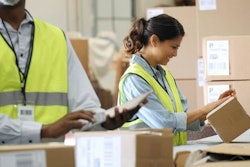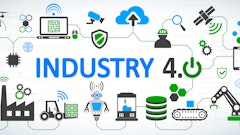
Humankind has lost some swagger of late. We’re more vulnerable to airborne viruses than we hoped. Our planet is struggling more than we feared. And, the economic fabric of society is stretched further than we imagined. There is a growing consciousness of the fragility in our systems – and our species – that’s calling out for a different, more responsible approach.
In modern multi-tier supply chains, sourcing needs and production processes are often spread across hundreds of suppliers operating in multiple countries to maximize economic efficiency. For years, this came at the cost of greater transparency and resilience. But, for years, global markets mostly got away with it. Then the Coronavirus disease (COVID-19) arrived.
The pandemic sent a wave of panic through global supply chains. Almost overnight, the taps turned off. Stockpiles were found to be insufficient. Products and services that were never previously deemed top priority – or of strategic national importance – were making headline news.
But, what was really lacking? It wasn’t just the physical toilet rolls, face masks or pasta. It was the digital information about where to find them. Who could provide them fastest? Were they the right quality? Where did they come from? Without that instant, reliable data, the wheels quickly fell off the cart.
Typical of black swan events, it’s already hard to remember the world before COVID-19. The microscopic virus has created unprecedented market volatility and fragility, alongside sweeping societal, government policy and financial framework changes. All of these interwoven pressures have driven companies across various industries to urgently re-evaluate their complex global supply chains.
The pandemic has changed the record. Before, businesses could play transparency in the background. It was pleasant mood music, as they continued expanding their supply chains. Now, they need to pump up the volume. And they may need a whole new audio system.
It is trust, not money, that makes the world go round, after all.
Blockchain and transparency surging
Those of us in the transparency industry have proclaimed the usefulness of blockchain for provenance for many years. COVID-19 has brought the full power of distributed ledger technology into clear view because international commerce needs to regain trust in its underlying systems. This challenge presents an opportunity for the integration of blockchain, a technology with the potential to fundamentally alter the future of supply chains forever.
Indeed, blockchain can help replace opaque, transactional supply chains with more transparent value chains. These three-dimensional networks encourage industries to grow the worth of their products and brand equity by creating digital twins of their products – offering social, ethical and environmental provenance that can be captured and shared as a point of differentiation in the market. Transparency is thus elevated into a competitive advantage.
Making visible the impact of a product through transparent and evidenced claims can enable accurate assessments of life cycle analysis in a fair and equitable way. If we are able to choose products on the basis of impact, we can support a circular economy and a conscious global trade system of value.
Practical attributes
Blockchain technology offers the building blocks to provide trading partners and consumers with trusted and secured data, and to synchronize processes through a mutually agreed ruleset. It is immutable (impossible to change once transactions are written), traceable (gives a fully traceable transaction history) and easy to automate (via smart contracts), which makes it highly practical at a time when international borders are closing to people.
The technology offers solutions to business challenges that have rapidly climbed up the agenda in recent months. For example, blockchain can help enable digital tooling to facilitate more frequent and in-depth supplier risk assessment, as more companies need to plan automation in supply chains as a response to COVID-19.
Blockchain can also help build resilience, by providing the connected tooling that’s needed to build an inventory of finished goods and raw materials to prevent future shocks and keep more products on hand for identified customers. Importantly, it can help to simplify manufacturing, as companies focus on their most important products, given the recurring risk of staff shortages due to lockdown protocols.
Consumers, businesses and governments need a clearer idea of where goods come from and where they are headed next. This global crisis offers an opportunity to move away from a purely transactional decision-making process around supply chains, based solely on cost and availability.
The commercial advantages of having the lifetime journey of an asset at our fingertips crystalized during the pandemic. Provenance data suddenly became an asset in its own right. Moving forward, industries can no longer afford to be laid-back about where resources come from.
As we chart a path forward beyond the COVID-19 crisis, blockchain has the potential to contribute to a more equitable system of commerce for producers and consumers alike. It’s time to make some noise about it.



















